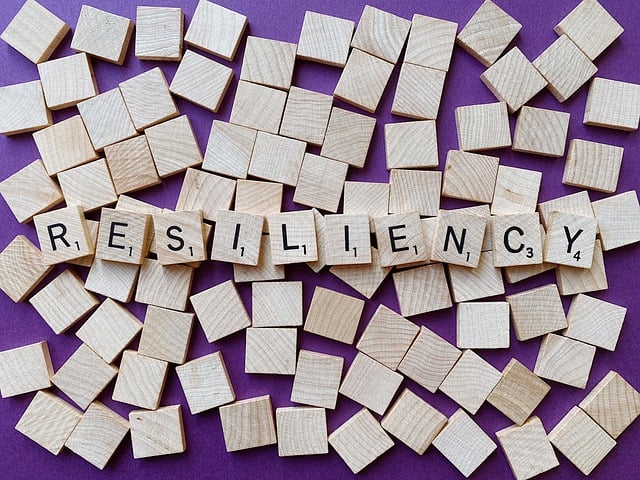The Role of Self-Compassion in Building Resilience
In the hustle and bustle of our daily lives, we encounter challenges that test our limits and push us to our breaking points. This is where the concept of self-compassion takes center stage. Self-compassion involves treating ourselves with the same kindness and understanding that we would offer to a friend facing hardship. Picture a friend who has just failed a test; we likely wouldn’t berate them with harsh words. Instead, we would extend a supportive hand, encouraging them to see their potential beyond the setback. Incorporating this gentle approach toward ourselves plays a crucial role in building resilience.
Resilience isn’t merely an innate quality; it’s a skill we can develop. Developing a success mindset is an essential aspect of resilience, and self-compassion serves as its foundational element. Research shows that individuals with high self-compassion tend to navigate through life’s adversities with a more constructive attitude. They bounce back quicker, learning and adapting without the heavy burden of self-criticism. This process involves recognizing our shared humanity, understanding that everyone makes mistakes, and accepting our imperfections as part of being human.
When faced with failures or challenges, it’s natural to fall into a negative spiral of self-criticism. Instead, practicing self-compassion can provide a soft landing. Rather than berating ourselves, we can acknowledge our feelings without judgment. This acknowledgment forms the first step in overcoming difficulties. By adopting a mindset that embraces imperfection, we witness a remarkable transformation. As we nurture self-compassion within our mindset, we cultivate the capacity to adapt and evolve, both mentally and emotionally. The journey becomes less about perfection and more about progress.
Understanding Self-Compassion
So, what precisely does self-compassion entail? Dr. Kristin Neff, a pioneering researcher in this field, defines self-compassion as consisting of three main components: self-kindness, common humanity, and mindfulness. Self-kindness involves being warm and understanding toward ourselves when we experience pain or failure. It counteracts self-judgment and provides care instead. Essentially, it’s the act of treating oneself just as kindly as we would treat someone we love.
The second component, common humanity, encourages us to recognize that suffering and personal inadequacy are part of the shared human experience. When we remember that we’re not alone in our struggles, we can look at our experiences with a broader view. This recognition fosters a supportive community, allowing us to connect with others facing similar battles.
Mindfulness, the third component of self-compassion, instructs us to observe our thoughts and feelings without suppressing or exaggerating them. It teaches us to be present with our experiences, fostering an awareness that can keep overwhelming emotions from spiraling out of control. By embracing these three components, we cultivate a compassionate relationship with ourselves. In turn, this creates a sturdy foundation upon which we can build resilience.
Self-Compassion vs. Self-Esteem
Many people confuse self-compassion with self-esteem, but these concepts are quite distinct. Self-esteem often hinges on external validation and comparisons with others, which can lead to a fragile sense of worth. When we base our value on achievements or social acceptance, we set ourselves up for a rollercoaster of highs and lows. Conversely, self-compassion doesn’t rely on comparisons; it promotes a consistent sense of worth that comes from self-acceptance.
Numerous studies indicate that self-compassion offers a more stable and resilient state of being than self-esteem. Those who practice self-compassion during difficult times experience lower levels of anxiety and depression. They view themselves as worthy regardless of conditions or circumstances. Adopting a self-compassionate approach allows us to face our flaws and failures without falling into despair. Instead of feeling diminished, we find strength in vulnerability. Thus, understanding this distinction plays a crucial role in fostering resilience.
The Impact of Self-Compassion on Resilience
Research consistently links self-compassion with resilience. Numerous studies have shown that individuals with higher levels of self-compassion are less likely to experience the debilitating effects of stress and trauma. This connection holds great promise, especially in our fast-paced and often unforgiving world. Self-compassion serves as an internal buffer against emotional turmoil. When challenges arise, those who embody self-compassion respond with adaptability rather than despair. They approach their struggles as opportunities for growth and learning.
Moreover, self-compassion encourages a process of reflection. Instead of being consumed by a setback, individuals can step back, evaluate the situation, and devise constructive responses. For instance, consider the story of an athlete who faces defeat. A self-compassionate athlete may reflect on the loss, analyze what went wrong, and seek ways to improve. This approach contrasts sharply with a more critical mindset, which might linger in self-blame and frustration. Here, self-compassion becomes a catalyst for resilience, leading to continuous self-development.
Practical Strategies to Cultivate Self-Compassion
Now that we understand the significance of self-compassion in building resilience, you might wonder how to incorporate it into your own life. Firstly, start by practicing self-kindness. When you encounter difficulties, speak to yourself like you would to a close friend. For example, if you made a mistake at work, instead of harshly criticizing yourself, acknowledge the mistake, and think about how you would comfort a friend in the same situation. Such small changes in dialogue can have profound effects.
Secondly, engage in mindfulness practices. Consider setting aside time each day for meditation or deep breathing exercises. Mindfulness puts you in touch with your thoughts and feelings, helping you acknowledge them without judgment. During these moments of stillness, remind yourself that suffering is part of the human experience. Allowing these thoughts to breathe aids in acceptance and fosters a sense of connection to others.
Another strategy involves journaling. Take time to write about your feelings and experiences, particularly difficult ones. Documenting your emotional responses can clarify your thoughts. As you express vulnerabilities on paper, you may recognize patterns of self-criticism or excessive pressure you put upon yourself. Challenge these thoughts by reframing them with a compassionate perspective. Over time, journaling can serve as a therapeutic tool for your resilience.
Self-Compassion in Everyday Situations
As you strive to integrate self-compassion into your daily routine, it’s essential to be aware of how readily you can apply this mindset in various situations. For instance, consider a busy working parent juggling multiple responsibilities. Immense pressure often leads to feelings of inadequacy or guilt for not fulfilling every role perfectly. Here, practicing self-compassion transforms the narrative from “I’m failing as a parent” to “I’m doing the best I can, and it’s okay not to have it all together.”
This shift fosters resilience by allowing the parent to acknowledge their efforts rather than fixate on perceived shortcomings. Rather than delivering a punitive inner dialogue, a self-compassionate approach creates space for self-acceptance and even a light-hearted acknowledgment of the chaos that often accompanies hectic days. The key lies in recognizing that imperfections don’t diminish our capabilities; they enrich our experience as human beings.
Success Mindset and Self-Compassion
The notion of a success mindset thrives on self-compassion. It encourages growth through resilience and adaptability. People with a success mindset view challenges as stepping stones, learning from failures rather than seeing them as defeats. Self-compassion reinforces this perspective by providing emotional resources for navigating obstacles. It invites individuals to embrace risks and potential failures while fostering a growth-oriented attitude.
When someone has a successful mindset grounded in self-compassion, they don’t shy away from setbacks. In fact, they embrace them as valuable learning experiences. This approach enables continuous improvement and promotes a sense of empowerment. Recognizing that setbacks are not a reflection of one’s worth is liberating. It allows individuals to pursue their goals with hope and determination, knowing that they can bounce back from any setback.
Building a Culture of Self-Compassion
To fully unlock the potential of self-compassion in building resilience, we must extend its principles beyond the individual. Creating a culture of self-compassion within communities, workplaces, and families serves to uplift collective well-being. Leaders and educators can set the stage by normalizing vulnerability and promoting self-kindness among colleagues and students.
In workplaces, fostering an environment that encourages self-compassion may significantly impact productivity, creativity, and collaboration. Employees can feel valued for their contributions, regardless of mistakes. Equipping team members with tools for self-compassion can enhance emotional resilience, resulting in a healthier atmosphere. Community initiatives emphasizing shared human experiences can help individuals connect and support each other in facing life’s challenges.
Frequently Asked Questions (FAQ)
What is self-compassion?
Self-compassion involves treating yourself with kindness and understanding during difficult times, acknowledging that imperfection is a common part of being human. It consists of self-kindness, common humanity, and mindfulness.
How does self-compassion build resilience?
Self-compassion helps individuals respond to setbacks with a constructive approach. It encourages emotional resilience, allowing people to bounce back from failures and treat them as opportunities for growth.
Can practicing self-compassion improve my mental well-being?
Yes, research shows that self-compassion reduces anxiety, depression, and stress. It promotes better emotional regulation and enhances overall mental well-being.
How can I practice self-compassion daily?
You can practice self-compassion by being kind to yourself, engaging in mindfulness, journaling your feelings, and reframing negative thoughts into more empowering narratives.
Is self-compassion the same as self-esteem?
No, self-compassion and self-esteem are different. Self-esteem often relies on external validation, while self-compassion centers on self-acceptance and kindness toward oneself, regardless of achievements.



